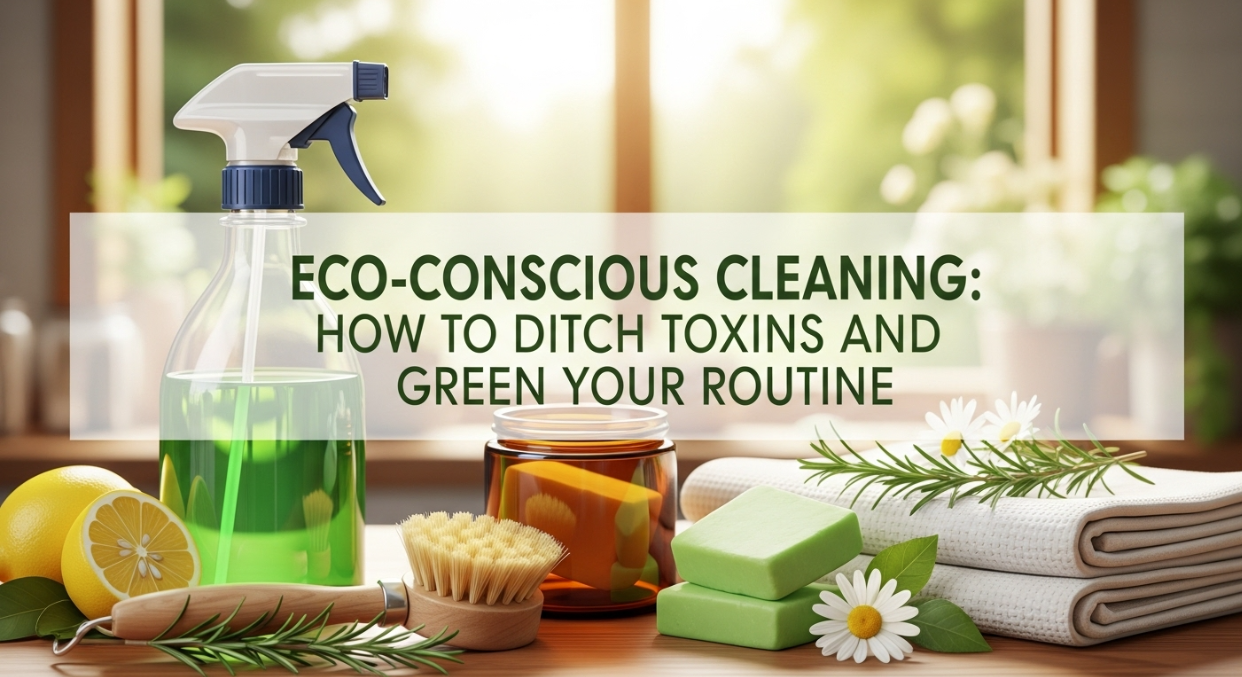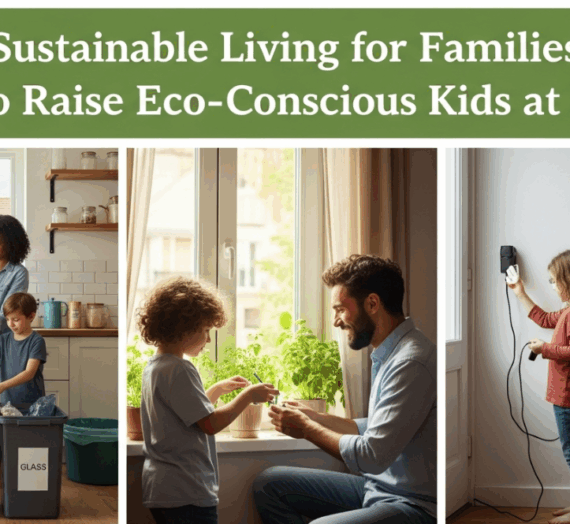
Introduction: Embracing Eco-Conscious Cleaning
Traditional cleaning products often hide harsh chemicals that harm our health and environment. Transitioning to eco-conscious cleaning means choosing natural, non-toxic alternatives that work effectively without compromising your well-being or the planet. By adopting eco-friendly cleaning habits at home, you reduce exposure to irritants, minimize plastic waste, and support a healthier living space for everyone in your household. For further insights, see Google search on eco-conscious cleaning benefits or Bing search on eco-conscious cleaning benefits.
Why Ditching Toxins Matters
Conventional cleaners frequently contain volatile organic compounds (VOCs), bleach, ammonia, and synthetic fragrances substances that can trigger respiratory issues, skin irritation, and indoor air pollution. Children and pets are especially vulnerable. Switching to green cleaning reduces these risks and contributes to cleaner indoor air and a safer home. Plus, eco-conscious cleaning decreases the release of toxins into waterways, supporting broader environmental health.
The Environmental and Health Impact
Poor water quality from chemical runoff and plastic pollution from disposable cleaning products threaten ecosystems worldwide. Cleaning sustainably helps cut down single-use plastics and prevents harmful residue from entering rivers and oceans. By choosing biodegradable, plant-based formulas, you support wildlife protection and biodiversity. On a personal level, green cleaners can ease allergies and reduce chemical exposure benefits backed by growing research into indoor air quality.
Everyday Habits for a Greener Cleaning Routine




Go DIY with Simple Ingredients
Common pantry staples like vinegar, baking soda, lemon juice, and castile soap can handle almost any cleaning task. Use vinegar and water for glass and mirrors, baking soda for scrubbing surfaces, and essential oil blends for natural fragrance.
Switch to Concentrated Refills
Bulk concentrates reduce packaging waste. Brands that sell refill pouches for multi-surface cleaners let you reuse sturdy spray bottles, cutting plastic consumption significantly.
Use Reusable Cloths and Brushes
Replace paper towels with washable microfiber cloths or natural fiber styles. For scrubbing, opt for wooden-handled brushes with replaceable heads instead of plastic scrubbers.
Practice Spot Cleaning
Instead of full-scale cleaning sessions, tackle spills immediately. A quick wipe prevents stains and reduces the need for harsh cleaners later.
Product Swaps That Make a Difference

Here are easy, impactful alternatives to conventional cleaning items:
- Swap antibacterial sprays for vinegar-lemon solutions.
- Trade plastic dish soap bottles for bar soap or refillable dispensers.
- Choose bamboo mop heads and unbleached cellulose sponges.
- Select biodegradable laundry sheets in compostable packaging.
Step-by-Step Guide to Homemade Cleaner Recipes

All‑Purpose Spray
Mix 1 cup water, 1 cup white vinegar, 1 tsp castile soap, and 10 drops of essential oil. Shake and use for countertops, appliances, and general cleaning.
Heavy-Duty Scrub
Combine 1/2 cup baking soda with 2 tablespoons castile soap. Add a few drops of essential oil, adjust consistency with water, and scrub sinks or tubs.
Glass and Mirror Cleaner
Use 1 part vinegar to 2 parts water, plus a drop of dish soap. Spray on glass and wipe with a lint-free cloth or newspaper for streak-free shine.
Natural Air Freshener
Simmer water with citrus peels, rosemary, and cinnamon sticks. Let the steam disperse gentle, chemical-free scent in your home.
Common Mistakes and FAQs in Green Cleaning

Will DIY Cleaners Really Work?
Yes simple ingredients are powerful. Vinegar is a natural disinfectant, baking soda excels at deodorizing, and soap breaks down grease. Most importantly, rinse well and apply elbow grease when needed.
What About Sanitizing Surfaces?
For high-touch areas, alcohol (at least 70%) or hydrogen peroxide are effective disinfectants. Non-toxic sanitizers can be safely integrated alongside eco-conscious cleaning habits.
Are Natural Products Hypoallergenic?
While plant-based cleansers are gentler than chemical-laden formulas, some people may still be sensitive to essential oils. Patch-test new recipes and use scent-free options if needed.
Budget-Friendly Eco-Cleaning Tips
- Buy vinegar and baking soda in bulk these staples are cheap and versatile.
- Reuse jars, bottles, or spray containers from store-bought products.
- Shop local refill stations or farmers’ markets to source eco products affordably.
- Make cleaning recipes in batches to save time and resources.
DIY Tools and Sustainable Solutions
Eco-conscious cleaning is easier with the right tools:
- Reusable microfiber cloths
- Bamboo or wooden scrub brushes
- Glass spray bottles
- Compost bins for organic waste
- Essential oil blends like tea tree (antimicrobial) and lemon (fresh scent)
Key Takeaways
- Eco-conscious cleaning reduces toxins in your home and environment.
- DIY recipes and smart swaps can replace most chemical cleaners.
- Reusable tools and concentrates cut waste and save money.
- Small, consistent changes build healthier routines over time.
| Focus Area | Benefits |
|---|---|
| Reduce Chemical Exposure | Healthier indoor air, lower respiratory and skin irritation risks |
| Cut Plastic Waste | Less environmental pollution, supports sustainable living |
| DIY Recipes | Cost-effective, customizable, natural ingredients |
| Reusable Tools | Durable, waste-reducing, eco-friendly |
| Consistent Habits | Builds lasting healthy lifestyle changes |
Ready to ditch toxic cleaners and embrace eco-conscious cleaning? Subscribe to our newsletter for natural product reviews, cleaning recipes, and sustainable living tips. Share this article with friends and start transforming your home one cleaner, healthier step at a time.
© 2025 Froyo Space. Stay on our website for daily eco-friendly cleaning inspiration.



